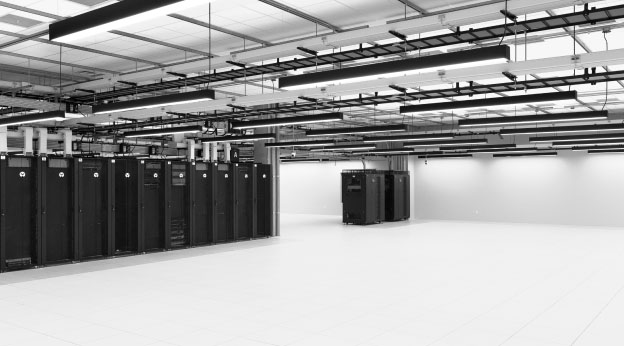Security compliance is an important element for all data centers. Regulatory compliance is non-negotiable, especially in companies that handle sensitive client data, such as financial details. While some companies view this as an addition to their overhead costs, businesses can leverage compliance to unlock their value by letting their clients know that they are serious about managing their private data.
Tenhats specializes in delivering comprehensive compliance solutions for data centers. These are some common standards we work with.
SSAE 22 Audit Standard and Certification
The American Institute of Certified Public Accountants (AICPA) Auditing Standards Board has evolved the audit and attestation standards with the release of the SSAE 22 in December 2020, replacing the earlier SSAE 18 standard. This development marks a significant progression in how organizations conduct internal audits of their systems and controls.
Transitioning from the previous SSAE 18, known formerly as SSAE 16 and SAS 70, SSAE 22 serves as the latest guideline for crafting Service Organization Control (SOC) reports. These include:
- SOC 1 Reports: Address financial information relevance and the integrity of underlying infrastructure.
- SOC 2 Reports: Focus on internal controls related to privacy, data security, and confidentiality. The rigorous process for SOC 2 compliance mandates detailed reporting on internal access and administrative control practices.
- SOC 3 Reports: Similar to SOC 2 but designed for public disclosure, offering a general overview of a company’s security and trustworthiness without detailed testing data.
SSAE 22 mandates a structured approach for service providers’ assertions on control measures’ effectiveness, including:
- Guidance on Risk Assessment: Emphasizing the need for businesses to regularly review and assess potential cybersecurity threats.
- Inclusion of Sub-Service Organization Controls: Offering clearer insights into the activities of third-party vendors and their impact on the service organization’s control environment.
These amendments are designed to elevate the standard for monitoring server and data center activities, addressing the increasing complexities and demands of cybersecurity management.
TenHats offers expert guidance and solutions aligned with the SSAE 22 framework, ensuring your organization not only meets but surpasses today’s audit and compliance standards.
HIPAA (Health Insurance Portability and Accountability)
HIPAA sets the standard for the protection of sensitive patient data, requiring all entities handling protected health information (PHI) to follow strict security protocols. This legislation encompasses not only healthcare providers but also extends to all companies that might come into contact with healthcare information, including data centers and cloud storage providers.
Maintaining HIPAA compliance extends to various aspects of cloud computing and data management, emphasizing the need for healthcare organizations to carefully evaluate their hosting providers. This responsibility to choose a HIPAA-compliant solution lies with the healthcare organizations themselves. If a company entrusts its patient data to a non-compliant data center, the liability falls on the healthcare organization. It’s imperative, therefore, to verify a data center’s compliance by requesting their HIPAA Report on Compliance (HROC), which offers assurance that they meet HIPAA’s rigorous standards.
TenHats data centers are fully HIPAA compliant, reflecting our commitment to securing sensitive healthcare information. We understand the gravity of this responsibility and encourage our partners and clients to proactively engage with us on compliance matters. Ensuring that your data storage solutions meet HIPAA standards is not just about regulatory compliance; it’s about protecting individuals’ health information and maintaining trust in your healthcare services.
PCI-DSS (Payment Card Industry Data Security Standard)
PCI-DSS is a regulatory standard that applies to all forms of ecommerce businesses. Businesses and websites that accept online transactions should be PC-DSS compliant. These standards were developed by the Payment Card Industry Security Standards Council members, including American Express, MasterCard, Visa, Discover, and more.
The main goal behind these regulations is to provide maximum safety to customers’ financial details. PCI-DSS 4.0 is the recent update of these regulations that further the protection of payment data with new controls to address sophisticated cyber attacks.
Understanding Data Center Tier Certifications
While not technically a regulatory compliance issue, the Uptime Institute’s Tier Certifications are key in evaluating data center performance. The Tier Classification System classifies data centers into four tiers, with Tier I being the most basic and Tier IV being the most advanced, offering higher levels of redundancy, fault tolerance, and concurrently maintainable systems that ensure services remain online.
TenHats is proud to announce that our facilities are built to exceed Tier III specifications, reflecting our commitment to providing reliable and resilient hosting solutions. Our dedication to maintaining high standards of operational excellence ensures that we can offer enhanced service reliability and uptime to our clients, which is critical for businesses handling sensitive health information under HIPAA or processing financial transactions in line with PCI-DSS requirements.
Industries Most Impacted by Compliance
Compliance requirements vary significantly across industries, especially where sensitive data, financial transactions, and personal information are involved. Some sectors are more heavily regulated due to the nature of the information they handle or the services they provide. Below are four industries that are particularly impacted by compliance standards:
Healthcare
In healthcare, regulations like HIPAA in the United States enforce strict data protection to secure patient information. This is critical as healthcare providers and related entities increasingly adopt digital records and telehealth, making comprehensive security measures essential to protect sensitive health information from breaches.
Financial Services
Financial services, including banks and fintech firms, adhere to rigorous regulations like PCI-DSS to secure financial transactions and consumer data. These frameworks demand robust protections for handling and sharing cardholder and financial information, emphasizing the industry’s high compliance requirements.
Ecommerce
E-commerce businesses must ensure PCI-DSS compliance to safeguard online transactions. Beyond securing payment information, they also face obligations under laws like the General Data Protection Regulation (GDPR) to protect consumer data, a response to increasing cyber threats and data breaches.
Technology and Cloud Computing
Technology firms, particularly cloud service providers, navigate a complex set of regulations including GDPR, FedRAMP, and sector-specific standards like HIPAA. These compliance requirements address data privacy, security, and sovereignty, critical in the global and scrutinized realm of cloud computing.
Benefits of a Compliant Data Center
Data center protection is important at all levels. As such, securing your data center or working with a compliant third-party provider should be a priority cybersecurity strategy, especially following the recent realization that cybersecurity threats and attacks are becoming frequent and aggressive. That said, below are some benefits of running a compliant data center:
- Security. It goes without saying that compliant servers and data centers provide unmatched protection to sensitive customer data.
- Cost Savings. Compliant data centers relieve your IT teams to work on core applications that affect your business directly. This eliminates the day-to-day need for server updates, network management, and other mundane tasks.
- Reduced Complexity. Collocating servers in compliant data centers eliminates the complexity and burden of non-compliant data centers.
- Limited legal liability. Compliant data centers reduce the risk of legal issues related to data breaches and non-compliance.
- Brand reputation. Committing to data security through compliance reassures clients of your dedication to safeguarding their information, thereby building trust.
Final Thoughts
Security standards of servers and data centers evolve daily, with new standards providing better security protocols. Your organization should strive for compliance not as a mere requirement but as a commitment to secure, reliable data storage.
At TenHats, we understand the complexities and challenges of maintaining data compliance in this dynamic environment. Our commitment to upholding the highest standards of data protection and our proactive approach to security ensure that your data is not only secure today but prepared for the threats of tomorrow.
We invite you to leverage our expertise and infrastructure to safeguard your data assets effectively.
Talk to an IT strategy expert today!
Explore how our compliant data center solutions can fortify your data protection strategies and give you peace of mind. With TenHats, you’re not just meeting compliance standards; you’re setting a new standard for data security in your industry.



